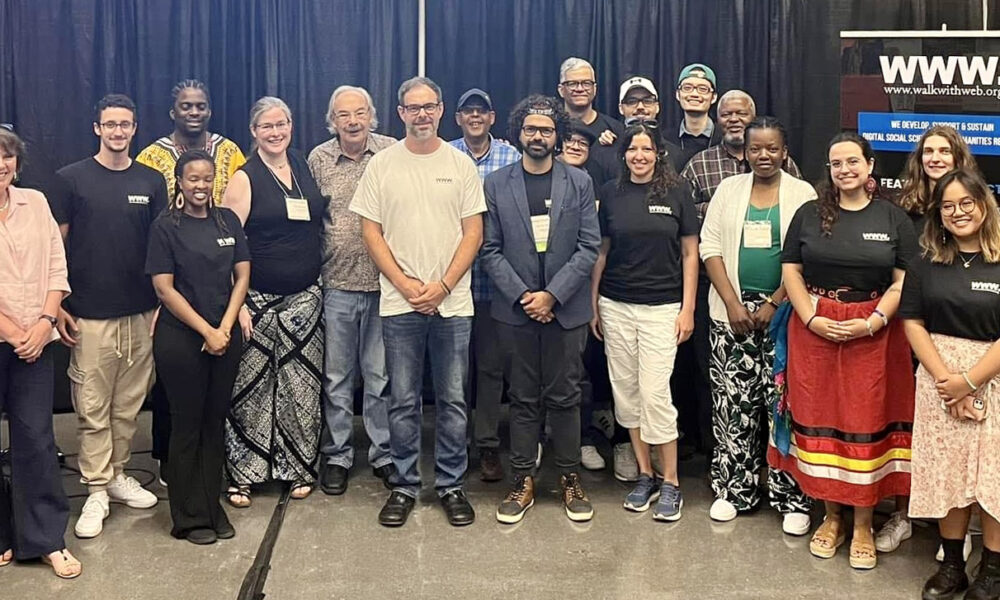Computers have become essential to how we work and live. Digital humanities, a new and expanding field, takes on the challenge of rethinking the traditionally paper-based operation of storing, processing, and accessing research materials.
Kartikay Chadha, a McGill doctoral student in Information Studies and CEO of Walk With Web Inc., sat down with The Tribune to discuss the challenges and successes with helping researchers of African history digitize their databases.
“Information Studies […] is a long-standing [field],” Chadha said. “There is so much work out there to know how to create these databases, how to organize them, how to manage them. All of this work is already done in library sciences [but] is missing in digital humanities.”
As research projects receive funding and start to grow, researchers frequently make new websites to contain their collected information.
“Independent researchers […] go to different archival sources. They will go to courthouses, they will go to all these repositories, and they will do their own research. Eventually, they build these smaller data sets that are proliferated all over the place,” Chadha said.
The technological support needed to keep these websites going is often either underestimated or unattainable once a research grant runs out.
“Technology is evolving. There are versions that get upgraded, plugins that get upgraded. You need somebody to take care of those things down the line,” Chadha said. “That’s where Walk With Web is situated. We collaborate with many researchers and universities. I’m trying to centralize [datasets] together so that we can provide a collaborative platform for people to work.”
Chadha’s research focuses on the African diaspora and slavery, helping to launch and sustain websites that provide researchers with access to crucial documents and imagery. Throughout this work, he considers both the technicalities of running a credible website and the ethical implications of digitizing African history.
A major concern in both traditional and digital African history is the tendency to sideline Black voices.
“Why is African Studies so white? I recall there was a conference that was cancelled a few years ago because there were no Black individuals on any panels for an African studies conference. This is not a new discussion in the discourse—It’s time to walk the talk,” Chadha said. “I’m interested in understanding how historians, specifically of African origins, interact with multimedia websites, because it’s a lot of their data that is being put online. How are we presenting it? Are we ethically sound about it? Are we morally sound about it?”
By keeping African historical data easily accessible online, the data’s relevance as part of the historical canon is honoured. Recently, Chadha helped to relaunch Slavery Images—a platform that allows researchers and professors to access historical imagery of slavery.
Slavery Images, originally created in the 1990s, contained around 2,000 images. It was also in desperate need of revitalization.
Chadha’s team worked on creating an intuitive interface and a usable website. Simultaneously, other researchers were responsible for verifying the historical validity of the catalogued images.
“Henry Lovejoy is the principal investigator of the project. He is the director of Digital Slavery Research Lab at CU Boulder. He conducted the historical research on this project including data collection, making sure that the content is historically accurate, that [we’re] using the correct terminologies while organizing and tagging documents for the development of the website,” Chadha said. “That is the blend of digital humanities—he has the humanity side; we have the digital side.”
The relaunch of the Slavery Images platform was highly successful.
“It’s fantastic. We have recorded over 20,000 unique users since the relaunch in January 2024,” Chadha said.
Walk With Web and its 22 projects’ success comes from the team Chadha has put together, along with his strategic approach to programming.
“[Programmers] have to think about error handling, right? What will my user click and break? The thought process goes towards the negative side. The approach needs to be that this [project] is possible, so let’s figure it out.”








